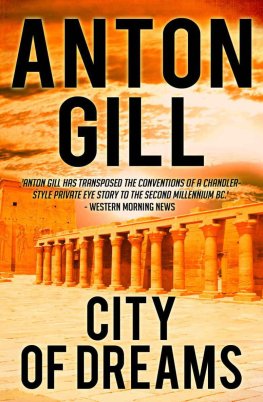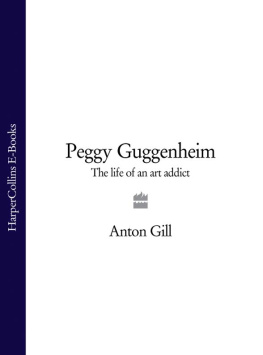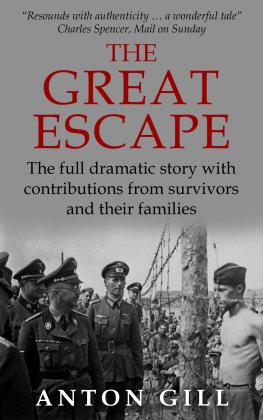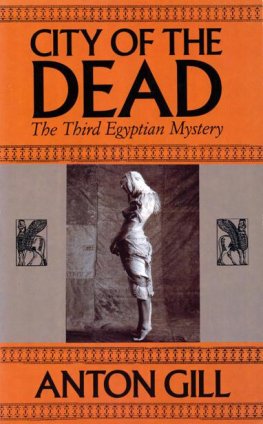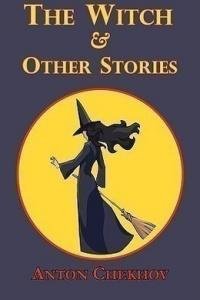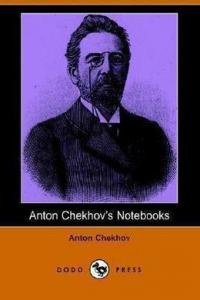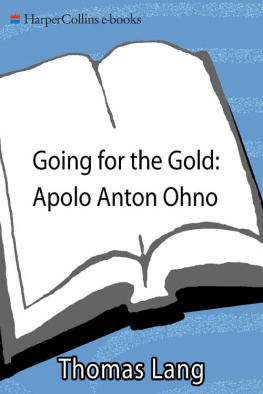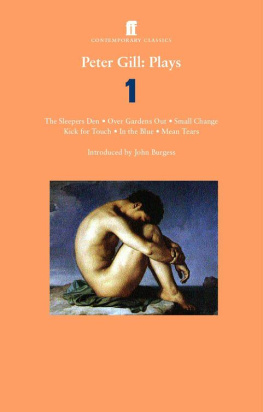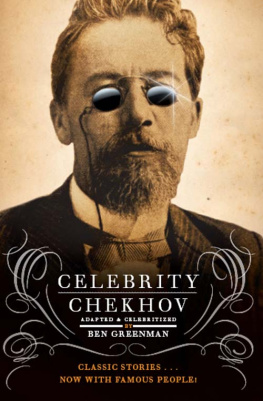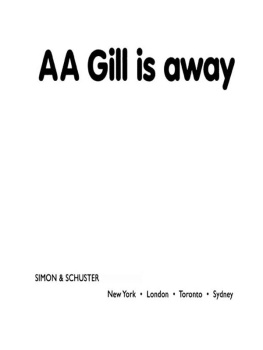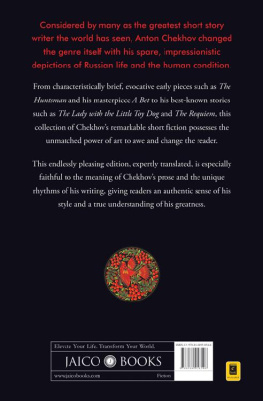Anton Gill - City of Dreams
Here you can read online Anton Gill - City of Dreams full text of the book (entire story) in english for free. Download pdf and epub, get meaning, cover and reviews about this ebook. year: 2015, publisher: Endeavour Press, genre: Detective and thriller. Description of the work, (preface) as well as reviews are available. Best literature library LitArk.com created for fans of good reading and offers a wide selection of genres:
Romance novel
Science fiction
Adventure
Detective
Science
History
Home and family
Prose
Art
Politics
Computer
Non-fiction
Religion
Business
Children
Humor
Choose a favorite category and find really read worthwhile books. Enjoy immersion in the world of imagination, feel the emotions of the characters or learn something new for yourself, make an fascinating discovery.
- Book:City of Dreams
- Author:
- Publisher:Endeavour Press
- Genre:
- Year:2015
- Rating:5 / 5
- Favourites:Add to favourites
- Your mark:
- 100
- 1
- 2
- 3
- 4
- 5
City of Dreams: summary, description and annotation
We offer to read an annotation, description, summary or preface (depends on what the author of the book "City of Dreams" wrote himself). If you haven't found the necessary information about the book — write in the comments, we will try to find it.
City of Dreams — read online for free the complete book (whole text) full work
Below is the text of the book, divided by pages. System saving the place of the last page read, allows you to conveniently read the book "City of Dreams" online for free, without having to search again every time where you left off. Put a bookmark, and you can go to the page where you finished reading at any time.
Font size:
Interval:
Bookmark:
Anton Gill
City of Dreams
ONE
The end of the knout hit the base of his spine with a force that burst a star of pain through his body, to his fingertips, feet, and skull. The prisoners heads were shaved but they were allowed no covering as they worked in the granite quarry in the heat of the day. The priests had decreed that the god Ra must also participate in their punishment.
Another blow flung him on to the harsh ground, where the broken rocks stabbed at knees and elbows. Still, he scrambled forward to escape a third lash. He heard the hiss of the scourge through the air, but this time the guard only succeeded in catching him across the back of the legs, where the muscles, hardened by eighteen months labour, were equal to withstanding its force. But he had no strength left to evade a fourth attack, and lay prone, feeling the suns harsh heat, tasting salt from the blood on his lips as it mingled with the scented dust of the quarry. A spiked rock close to his eyes loomed large as a mountain.
Summoning the last of his strength he braced himself for another blow. To get more courage he whispered in his heart his name: Surere. From the corner of his eye, he saw the end of the whip flick past. Beyond it, the dirty feet of other prisoners, who were standing out of range, watching.
The guard relented.
Get up, Surere heard far above him.
Cautiously, he pushed himself on to hands and knees, fearing that the guard would change his mind; but he looked up and saw the mans muscular back as he walked off, looking for another shirker.
He rose, firing silent curses. The one thing that had preserved his sanity in this southern hell, the Number Seven Red Granite Quarry near the Rivers First Cataract, was the maintenance of his dignity. He had been a district governor under the old king, Akhenaten, and a district governor he would remain, though it was already long since he had been stripped of rank and title, and shipped down from the City of the Horizon in a convict barge with many of his fellow-officials during the purges that followed Akhenatens death and the collapse of his new capital.
How long had it been? Two years? Three? Surere had struggled to keep a note of time, but only the annual inundation of the river marked it in the changeless succession of sunny days, at a place where not even the great festivals were noticed. In the time that had passed, most of his former colleagues, senior scribes and civil servants like himself, had perished through the unaccustomed hard labour.
Surere put his survival down to the strict continuation of his inner life. He would never be impolite, nor allow the brutalising effects of the labour camp to enter his soul; though the effort this cost was great. He had known men of culture here who had become so obsessed with self-comfort that they masturbated ceaselessly, their hands straying to limp penises even at work, whenever the guards attention was not on them, their skin grey, drawn across their faces like papyrus, their eyes milky at the death of intelligence. He had known officials who at the court of the City of the Horizon would never have been seen even by their concubines, let alone their wives, without make-up or unperfumed, now careless even of washing, their ragged loincloths daubed with the crust of faeces, the disgusting stubble of beards on their chins, their breaths foul from neglected teeth and the sour-bread-and-onion doled out to them here.
He fell to work again at the relatively easy task which good behaviour and an ability to survive had earned him: scraping away the chippings that accumulated as the masons worked at cutting an obelisk out of a sloping bank of granite. The palm-rope shackles around his feet still chafed at the worn skin, though by now his feet had grown sufficiently hard not to be unduly worried by them. Diseased feet spelt death for a prisoner. Unable to walk, he was unable to earn his keep, and as no doctors worked in the camp, the end would come either through the blows of the guards, or be sought by the prisoner himself, who might drag himself to the waters edge at night and give himself up to the River.
He gathered dusty shards into his tattered apron, looking down at his calloused hands as if they belonged to a stranger. He remembered touching his dear lover with them. Amenenopet, that sweet boy. He only dwelt on the tender thought for a moment. The purity of youth. How beautiful life would be if one could be spared the disillusion of experience.
Shaking his head, Surere clambered out of the trench to dump the shards on to the waste-sledge which would later be rolled down the slope to the dump. He knew that here in the labour camp one of the many ways to madness led through remembering a happier past.
He turned his heart in another direction. For weeks now he had been cultivating one of the masons. They were semi-skilled men who roughly hewed out the obelisks from the rock before they were loaded on to barges bound downriver for the Northern and Southern Capitals, where master masons would trim them to their final shape, and metalworkers and carvers would adorn them with the hieroglyphs appropriate to the subject of their commemoration.
This man, Khaemhet, would soon be taking a new obelisk to the Southern Capital, and Surere felt confident that at last he would be selected to be one of the very few privileged prisoners to accompany it, though until now no former official of Akhenatens court among the camps inmates had been accorded such a favour. The late pharaoh, whose visionary reign had ended so disastrously for the empire of the Black Land, had even been deprived of his name. Now, under the pharaoh Tutankhamun, his predecessor could only be referred to by the words Great Criminal. Surere shuddered. To take a mans name away, even if he were a god like the pharaoh, was to destroy his soul. The thought of non-existence after death was too horrible to contemplate.
The day was well advanced, and the sun, in his seqtet boat, had begun the descent to the western horizon. Still the heat beat down, and reflected back from the smooth granite slope, setting up a fierce glow in Sureres face. For a moment he allowed his heart to wander again through the streets of the City of the Horizon, the capital Akhenaten had built as the centre for his new religion, for which all the old gods had been swept away. The pharaoh had taught his people to worship the life that came from Aten the power that dances in the sunlight. Unbidden, lines from the kings great song came to Surere, and the dust and heat of the labour camp receded. It was as if a cool hand had been placed on his brow, soothing his loneliness and his desperation.
Thy dawning is beautiful in the horizon of heaven,
O living Aten, beginning of life!
When thou risest in the eastern horizon of heaven,
Thou fillest every land with thy beauty;
For thou art beautiful, great, glittering, high over the earth;
Thy rays, they encompass the lands, even all thou hast made.
Thou art Ra, and thou hast carried them all away captive;
Thou bindest them by thy love.
Though thou art afar, thy rays are on earth;
Though thou art on high, thy footprints are the day.
He stooped to gather more chips of stone, flying from the bronze chisel of the mason. Passing close to the man, Surere could smell his sweat, and thought how it would have offended him once. Now, he was sure, he smelt far worse himself. Sensing his eyes, the mason turned round to glare. Surere straightened up, easing his back, and carried another apron-load to the sledge.
His attention was attracted to the River far below, where a massive barge was manoeuvring itself into position. It must have come down to the quay while he was working, for he had not noticed it before. From its vast beam and length, and its battered appearance, he knew it to be an obelisk barge, and his pulse quickened. Was it possible that this time he might be on it when it sailed, instead of just watching it go?
Font size:
Interval:
Bookmark:
Similar books «City of Dreams»
Look at similar books to City of Dreams. We have selected literature similar in name and meaning in the hope of providing readers with more options to find new, interesting, not yet read works.
Discussion, reviews of the book City of Dreams and just readers' own opinions. Leave your comments, write what you think about the work, its meaning or the main characters. Specify what exactly you liked and what you didn't like, and why you think so.

